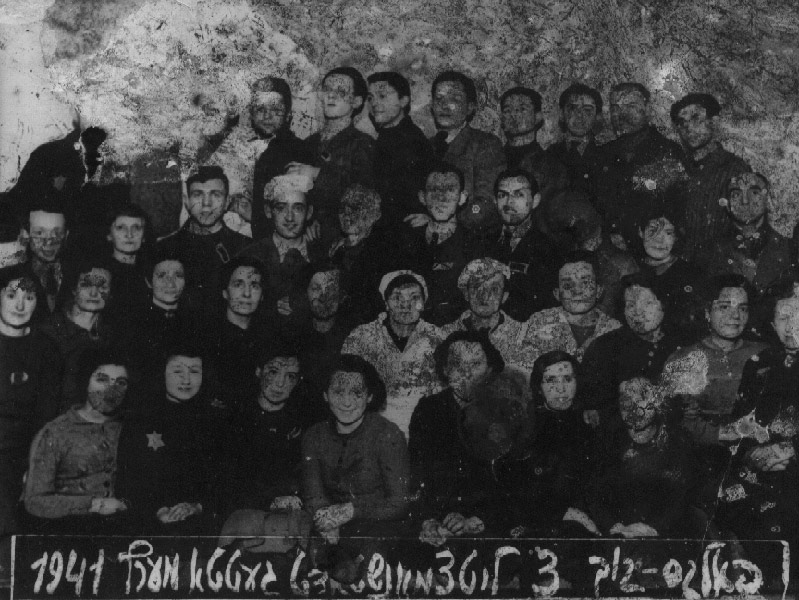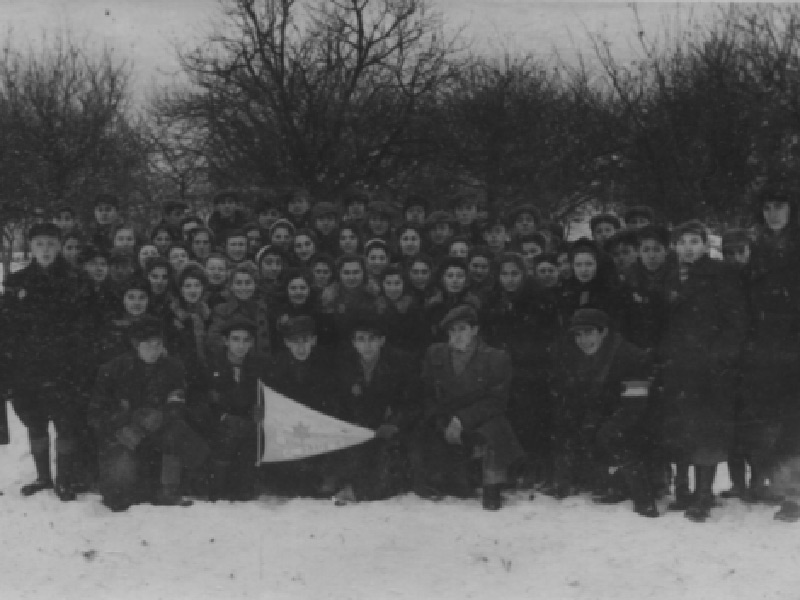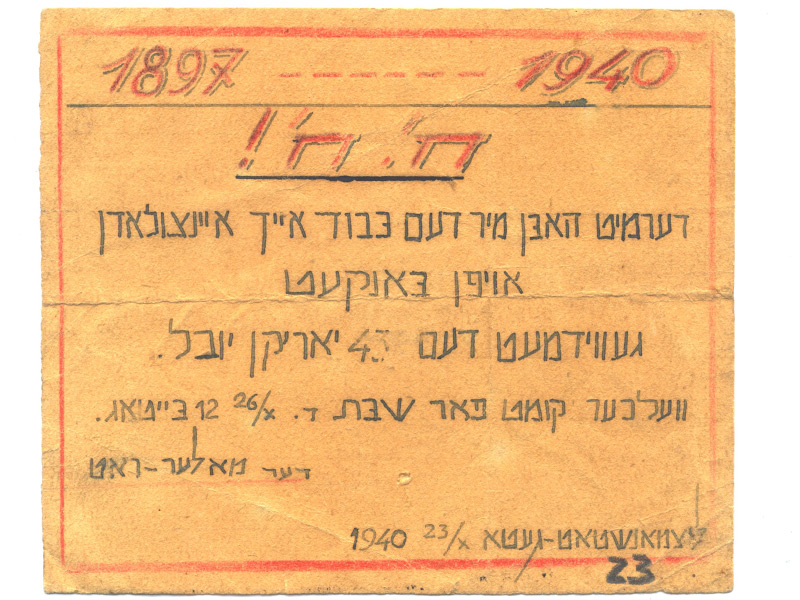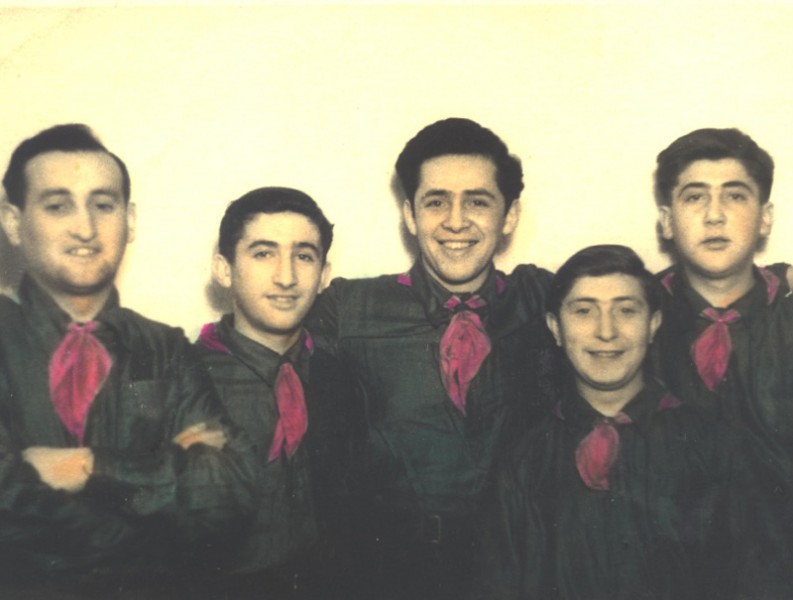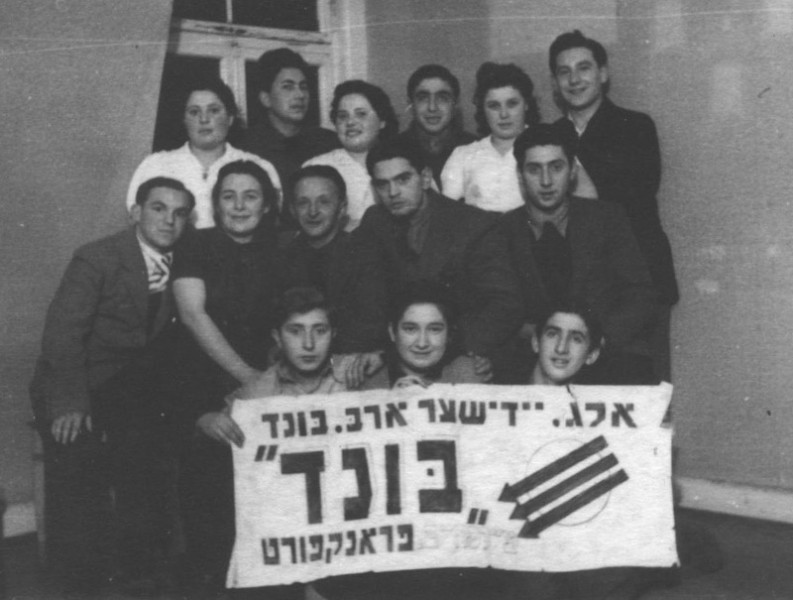Story:
The Bund
The Bund was a Jewish community organisation that strove to improve life in the ghetto, by establishing a soup kitchen, and sporting and cultural activities. The Nazis banned the group, so members met in small groups to avoid detection. Although wide scale armed resistance was impossible in Lodz, due to Rumkowski’s authoritarian rule and the ghetto’s isolation from the outside world, the Bund contributed in other ways. They organised resistance activities such as removing parts from products which were being manufactured for the Germans, and attempting to procure and construct weapons.
Bund, an abbreviation for ‘the General Jewish Labour Bund of Lithuania, Poland and Russia’, was a secular Jewish socialist party founded in Vilnius, Russia in 1897. They sought to unite all Jewish workers in the Russian Empire into a united socialist party. The Russian Empire then included Lithuania, Latvia, Belorus, Ukraine and most of present-day Poland. The Bund came to oppose Zionism, arguing that emigrating to Palestine was a form of escapism. They promoted the use of Yiddish as a national Jewish language, rather than reviving Hebrew, as Zionists preferred. They had a youth group called ‘Tsukunft’ (Yiddish for future).
During the liquidation of the ghetto between July and August 1944, the Bund were instrumental in warning inhabitants to avoid joining transports to Auschwitz, and to help them hide in the ghetto for as long as possible.
